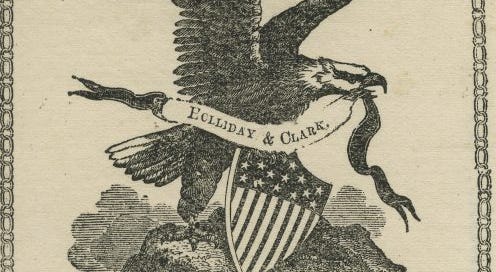The growing rancor between America’s political parties in recent years has caused history-minded observers to liken our current situation to that of America in the 1850s. The rift at that time grew wider and deeper and culminated in the Civil War. Many wonder whether something similar impends today.
The answer is no, for two reasons. The first is the lack of a present-day geographical boundary comparable to the Mason-Dixon Line in the 1850s. Secessionist sentiment then was concentrated in the South, the states of which could imagine breaking away from the Union and establishing a new country that had the geographic characteristics of a country: contiguity, access to the sea, defensible borders.
A breakup of the Union today would be far messier. Red states are mostly in the center of the country, with blue states on the coasts. Within red states are blue cities; within blue states are red hinterlands. Sorting things out would be far more difficult than it was in the 1860s—and even then it wasn’t always easy. Unionist West Virginia defected from Confederate Virginia, and the Unionist border states of Missouri and Kentucky were convulsed by Confederate guerrilla action.
The second and larger reason there won’t be a new civil war is that there is no economic driver of separation today. Slavery wasn’t simply a means of mobilizing labor; it was also the basis of the principal form of movable wealth in the South. When Abraham Lincoln asserted that America could not remain half-slave and half-free, Southern slaveholders credibly feared they were going to be impoverished if they remained in the Union under a Lincoln presidency. They dismissed as eyewash his disclaimers to the contrary, and when he issued the Emancipation Proclamation—to be sure, after eighteen months of fighting—they said I told you so.
In every state that seceded, slave owners and slave traders were the loudest voices in favor of separation. Their influence in Virginia, the largest and most important of the slave states, was particularly telling. When the Virginia convention to consider secession first met, the Unionist delegates appeared to hold the balance. Virginians considered themselves different from the people of the Deep South, less dependent on slavery and more closely connected economically to Pennsylvania and other states to their north. But the slave holders and especially the slave traders—who marketed Virginia-born slaves to cotton planters in Mississippi, Louisiana and Texas—mounted a furious propaganda campaign in favor of secession. Even then, the convention resisted secession until Lincoln, after the loss of Fort Sumter, called on Virginia and the other loyal states to send volunteers to fight the secessionists. Virginians realized their state was about to be invaded by Union troops heading south, and they refused to let this happen without a fight.
Today there is no economic or property interest that clearly divides red states from blue states. Such economic policies as distinguish Texas from California, for example, deal with marginal matters like tax rates and regulation. Moreover, economic interests today argue for continuation of the Union, not division of the Union. The single market that is the American economy has been the most important contributor to American prosperity; it’s what made the American economy different from the multiple economies of Europe prior to the European Union. No major economic interest in America wants to endanger that.
Partisan politics today is angry but superficial by comparison with the politics of the 1850s. Republicans call Democrats arrogant socialists, without understanding what socialism really is. Democrats treat Republicans as flat-earth racist-enablers, if not racists themselves.
But no one’s material ox is about to be gored. Southern slave interests were willing risk war and its cost, given the peril of having billions of dollars of their property erased by emancipation. Nothing today is so threatened; nothing warrants the risks of war.
So expect to hear more shouting and witness more posturing. But don’t expect anything substantial to come of it—because there’s nothing substantial beneath it.




The south's economy was very driven by slavery and as the character who play the Confederate Vice President Alexander Hamilton Stephens in the movie Lincoln pointed out- ending slavery extinguished their economy. (Incidentally, the actor who played Stephens in the movie looked amazingly like the actual person)!
And you are also correct- I am SO tired of hearing the phrase "socialist" by Republicans. It always reminds me of Slavoj Zizek's turn of phrase "in a time of actual existing socialism." hahaha
With regards to actual civil war, I agree with you and have said the same thing- no defined geography is at play. BUT, a caveat, though we may not have actual civil war, I have no illusions we will avoid violence. The violence won't arise to guerrilla warfare as was seen in West Virginia, Missouri or Kentucky. But I fully expect more incidents of domestic terrorism such as attempts to kidnap or kill government officials (as we saw here in Michigan) or shootings and attacks elsewhere. We have already had a mass murder several years ago by McVeigh using explosives. We will see more of it especially as the current Republican Party descends into anti-democratic conspiracy mentality in which the only legitimate elections are the ones they win.